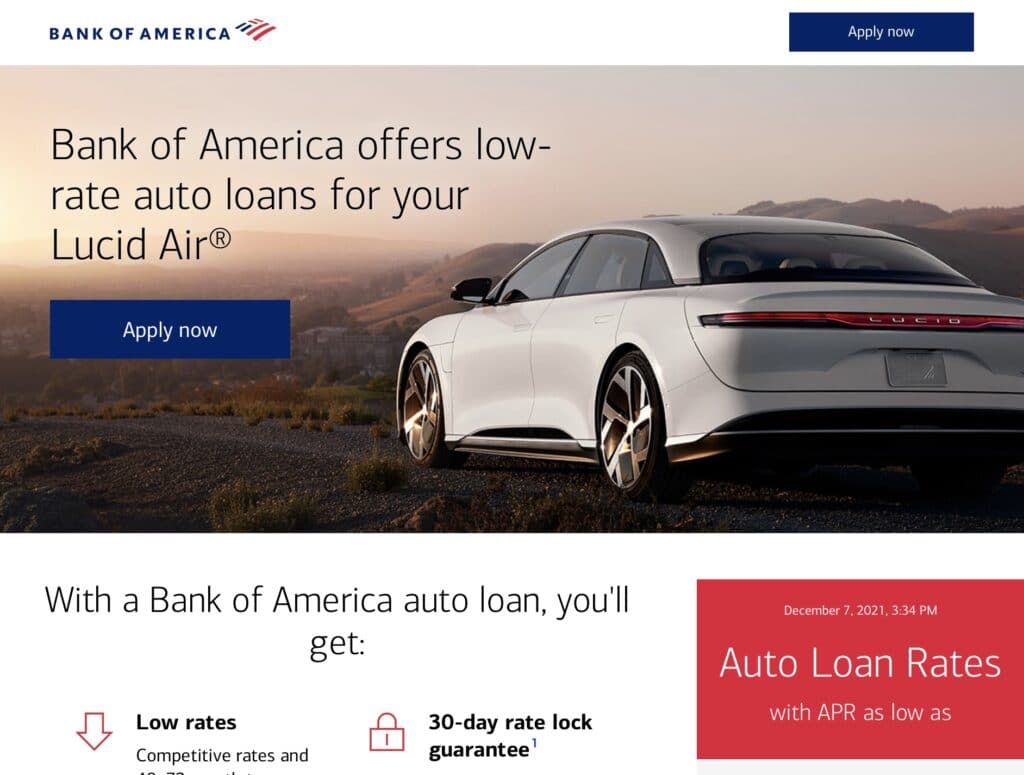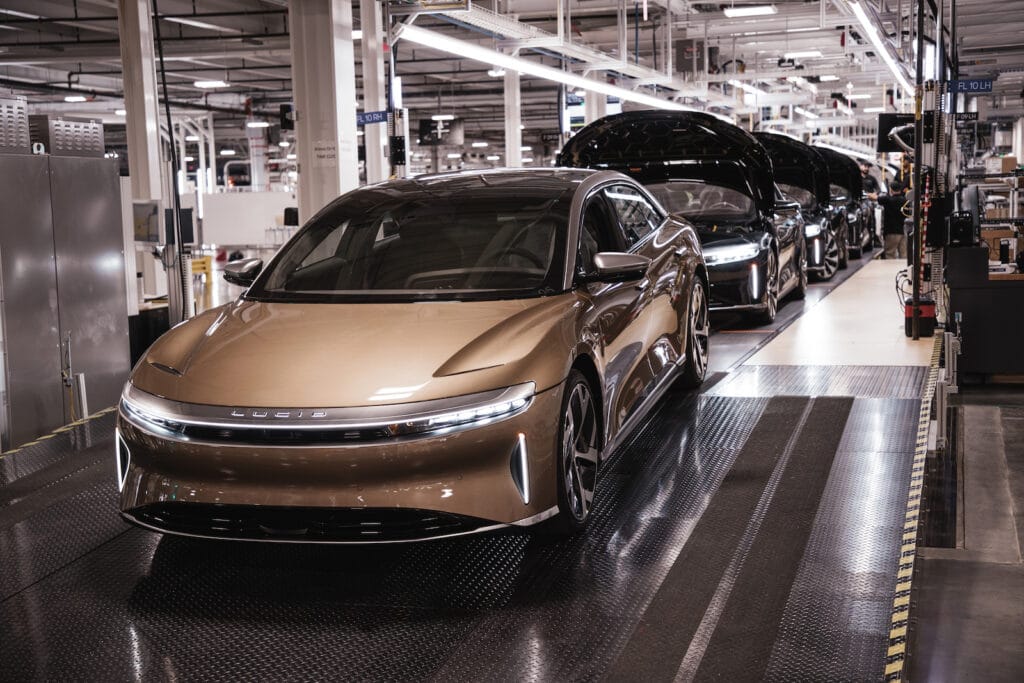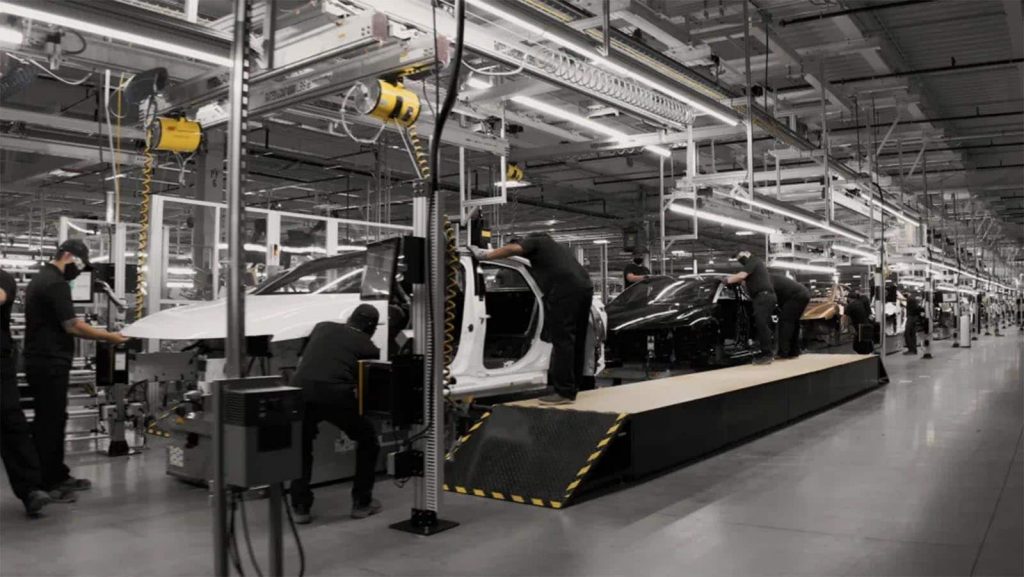
Startup automaker Lucid announced Monday it chose Bank of America as its preferred lending partner for Lucid customers applying for new car financing. The new service can be done online at Bank of America, or through Lucid’s agents.
“The strategic relationship between Lucid and Bank of America is another way of enhancing and streamlining the vehicle buying experience for Lucid customers,” said Amira Aly, director of financial services at Lucid.
Proof of Lucid’s growing business
Lucid began deliveries of the Lucid Air in October, and the company says that it has more than 17,000 reservations. Adding a preferred lender should make it easier for potential customers to buy one, especially given it can all be handled online.
“This financing solution was developed for Lucid to make it easier for customers to finance electric vehicles,” said Fabien Thierry, head of vehicle lending products at Bank of America.

A different model for vehicle financing
Other startups have similar financing arrangements.
Rivian Financial Services, the financing arm of startup automaker Rivian, does have its own financial arm, but it works with Chase as its private label partner in the U.S., with Scotiabank providing the same service in Canada.
Similarly, Tesla works with Wells Fargo and U.S. Bank to arrange vehicle financing. All companies say that financing can be handled digitally, and buyers can arrange their own third-party financing.
A missed opportunity?

This model is in marked contrast from legacy automakers, who have their own in-house financing companies, providing them with another revenue source. In fact, it was General Motors Acceptance Corporation’s ability to finance GM customer new vehicle loans that helped give it a leg up over Ford Motor Co., which lacked a finance arm, in the early days of the auto industry.
Today, the world’s top automakers have their own in-house financing companies, such as GM Financial, Ford Credit, Stellantis Financial Services U.S., Toyota Financial Services, Honda Financial Services, Mercedes-Benz Financial Services, and many others.
But Lucid’s lack of a captive finance arm comes from a lack of cash, a common problem for neophyte automakers, like Lucid, Rivian and evevn Tesla, which makes more money from selling credits than selling cars.

“It takes a lot of capital to start, and Lucid doesn’t have the kind of money it needs to loan to customers,” said Sam Fiorani, vice president, global vehicle forecasting at AutoForecast Solutions LLC. Whatever money the companies do have goes to creating their new products and establishing manufacturing facilities, service centers and other costs.
Fiorani says the new companies will most likely establish captive finance arms, once they have the money.
Captive financiers underwrite the bulk of new car loans
The lack of captive finance arm is no small matter, given that 85% of new car purchases are paid for by an auto loan. Of those loans, 70% are made through car dealerships, according to the National Automobile Dealers Association. With that kind of revenue flowing to partners like Wells Fargo, Chase and US Bank, look for Lucid and its competitors to get on the financing bandwagon as soon as it corporate finances permit.








More reason to hope they go belly up and take BoA with them.